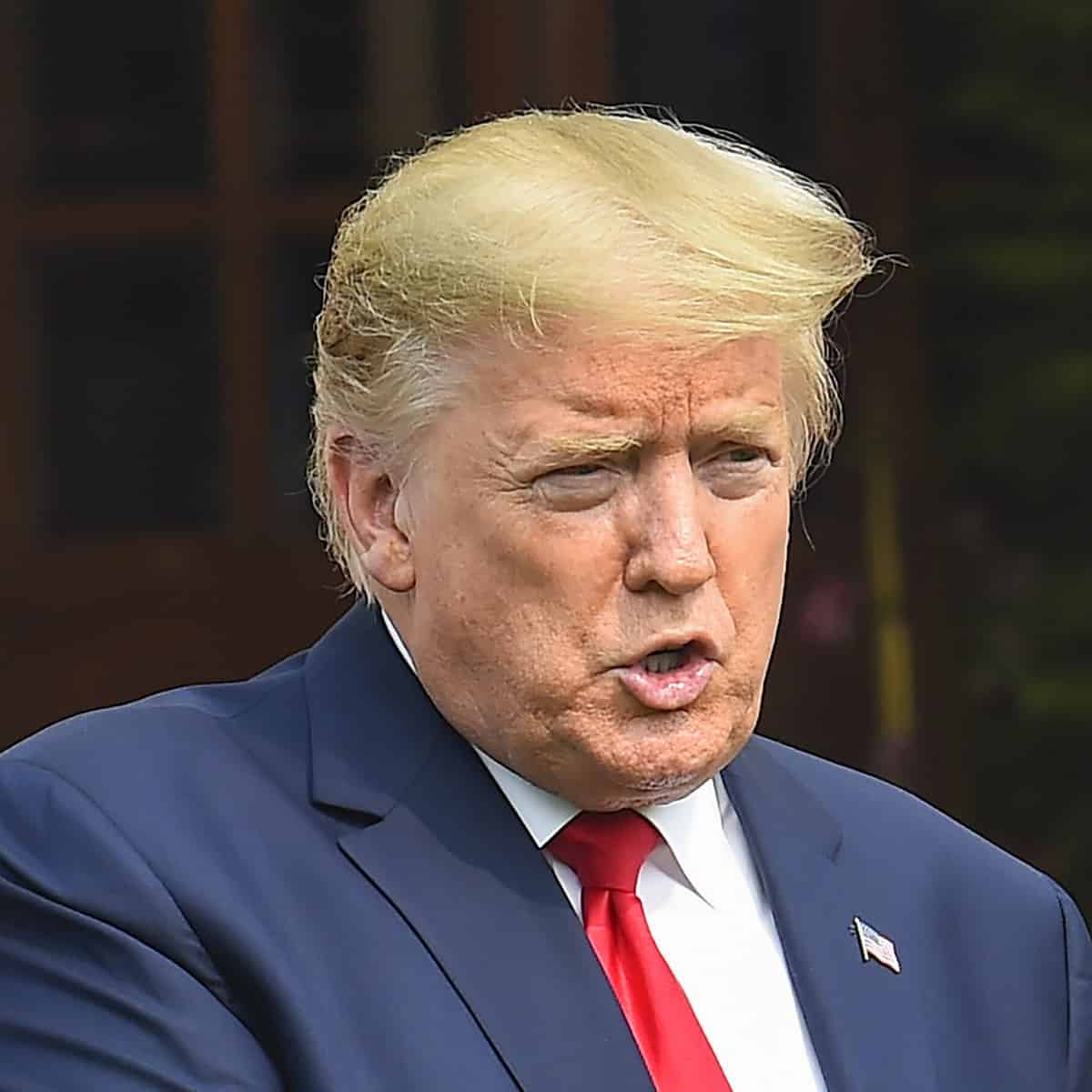
New York: By invoking the Supreme Court ruling on presidential immunity, former US President Donald Trump has won a timely reprieve by getting the court to agree to delay his sentencing till after the Republican Party Convention where he is set to be crowned the party’s presidential candidate.
Without an objection from the prosecutors, Judge Juan Merchan agreed on Tuesday to postpone the sentencing to consider claims by Trump’s lawyers that the top judiciary’s ruling applied his conviction last month on 34 charges of falsifying his business records to cover up payments to a porn star.
The sentencing now postponed to September 18 was set for July 11 — four days before the Republican Party Convention scheduled to be held from July 15 to 18.
Trump faced a maximum sentence of four years for each offence and if he were sentenced as scheduled on July 11, he would have faced in the worst-case scenario the prospect of being in prison during the party convention in Milwaukee in Wisconsin state.
The date now set by the court would also be after the next presidential debate between Trump and President Joe Biden on September 10.
Trump welcomed the delay, posting on the media site ‘Truth Social’, “The impact of the immunity ruling is a loud and clear signal for justice in the US.”
The Supreme Court ruling on Monday that could also affect his other cases came while Biden is facing a crisis because of his bewildering performance last week during a televised debate with Trump when he seemed at times to mumble incoherently and sport a vacant stare.
This has led to questions about his capabilities and calls by even his party members — and media that is supportive of him — to withdraw as the Democratic Party candidate and allow someone else more able to take on Trump in the November election.
Trump’s lawyers cited the Supreme Court ruling that a President cannot be prosecuted for official actions to demand that his conviction to be tossed out.
The arguments are on flimsy ground, though, because the Supreme Court said that a President can be prosecuted for personal actions as distinct from official actions, and the hush money case involves Trump’s personal actions before he became President.
However, their filing against the conviction would still have to get a response from the prosecution and be considered by the judge, buying Trump time.
The local prosecutor who brought the case, Alvin Bragg, wrote to the judge that “although we believe defendant’s arguments to be without merit, we do not oppose his request for leave to file and his putative request to adjourn sentencing pending determination of his motion”.
Trump’s lawyer’s arguments hinge on some evidence produced by the prosecutors like cheques he signed and social media posts he made while President that they claim came under the ambit of official actions.
Merchan had already dismissed the claim about social media posts because they were out there for millions of people to see.
Paying hush money to buy the silence of someone to avoid a scandal is not a crime, but falsifying business records is and the prosecution said that he had falsely shown the hush money as payments for legal services leading to his conviction.
Porn star Stormy Daniels had alleged that Trump had a sexual tryst with her in 2006 when his wife was pregnant.
As the 2016 election campaign got underway, Trump paid for her silence $130,000 through his then-lawyer Michael Cohen, who turned against Trump after his conviction in a different case and became a prosecution witness.
The cheques made in installments to Cohen and shown on the account books as lawyer’s fees continued while Trump was in the White House.
Merchan has the option to give Trump probation — virtually a warning that could lead to a prison term if he violates the conditions set by the judge — and/or a fine but sparing him prison time as Trump would be considered a first-time offender.
Unlike the New York case, the Supreme Court ruling could have a more direct bearing on the secret documents case in a Florida federal court and election interference cases in a Georgia state court and a Washington federal court as they pertain to actions he took while President.
These cases could now be delayed till after the November elections while lawyers thrash out the implications of the Supreme Court ruling.
The Supreme Court’s judgment reflected the nation’s political divide with six Conservative — three appointed by Trump — coming out for the President’s immunity and a minority of three liberal judges appointed by Democratic Presidents — one by Biden — opposing it.
In Florida, he is accused of illegally keeping classified documents with him after leaving office.
The Washington and Georgia cases revolve around his attempts to stay in power after losing the 2020 election to Biden.
The Supreme Court ruled on Trump’s appeal against the Washington case, but it has broader implications for Trump’s other cases as well as any to be brought against other Presidents.



